It’s 2022 and ecommerce has evolved to become much more than a transactional medium between sellers and buyers. No, it’s not just about a killer product anymore and neither is it only about how customers perceive your brand. This is a time when customer experience (CX) can make or break the long term sustainability and success of your ecommerce business.The global customer experience management industry is worth.$11.34 billion; moreover, the global customer service satisfaction rate is 77%, further highlighting the importance of a great CX.
Even with the most game-changing products, businesses can fail to engage and convert customers, if they are not focused on CX. According to a Forrester Consulting market credibility study, companies that are able to tune into CX effectively outdo other businesses by almost 80%. On the other end, shoppers are instantly put off by experiences where they face navigation challenges, a complicated checkout process and sketchy post-purchase support.
To help you make the most of what’s already working well for your business, we’ve rounded up 10 tips to uplift ecommerce CX from the get-go. These cover the most important aspects that make it more worthwhile for shoppers to continue to engage with your brand and convert along the way.
1) Make your product pages perform
- Keep your product descriptions crisp yet human.In the absence of brick-and-mortar setups, customers prefer having a clear understanding of what a product is all about, including features and benefits. Using words minimally but effectively while adding to the narrative, can instantly grab attention. Here’s how food brand Mikey’s does it, being catchy and relevant at the same time.
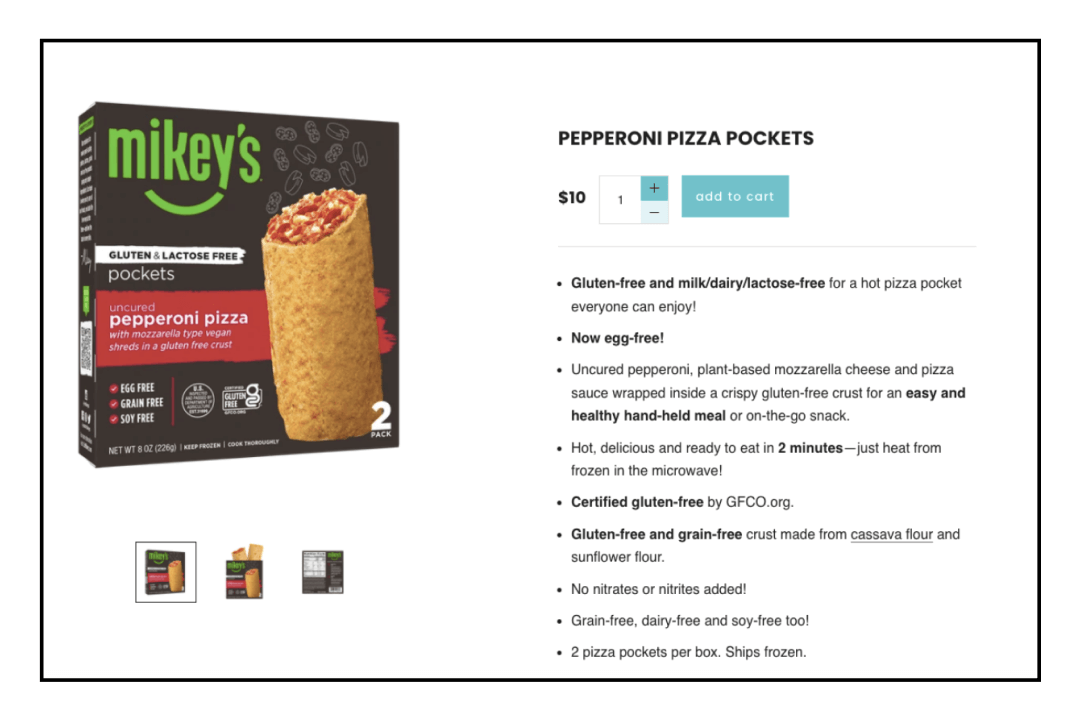
- Go after clear, self-explanatory images. A little extra effort on how you develop your image galleries can take you a long way. When shoppers come across images that offer them a wholesome view of a product, they are relieved and delighted. Fashion brand Summersalt uses sharp and simple photography to bring alive their products through a series of images.

- State product availability & selection upfront. If a customer is looking for a specific product, they deserve to know whether it’s available or not. Finding out something is unavailable after spending time adding to cart can be a frustrating experience. Overstock showcases this information up front, saving a user’s time and effort.
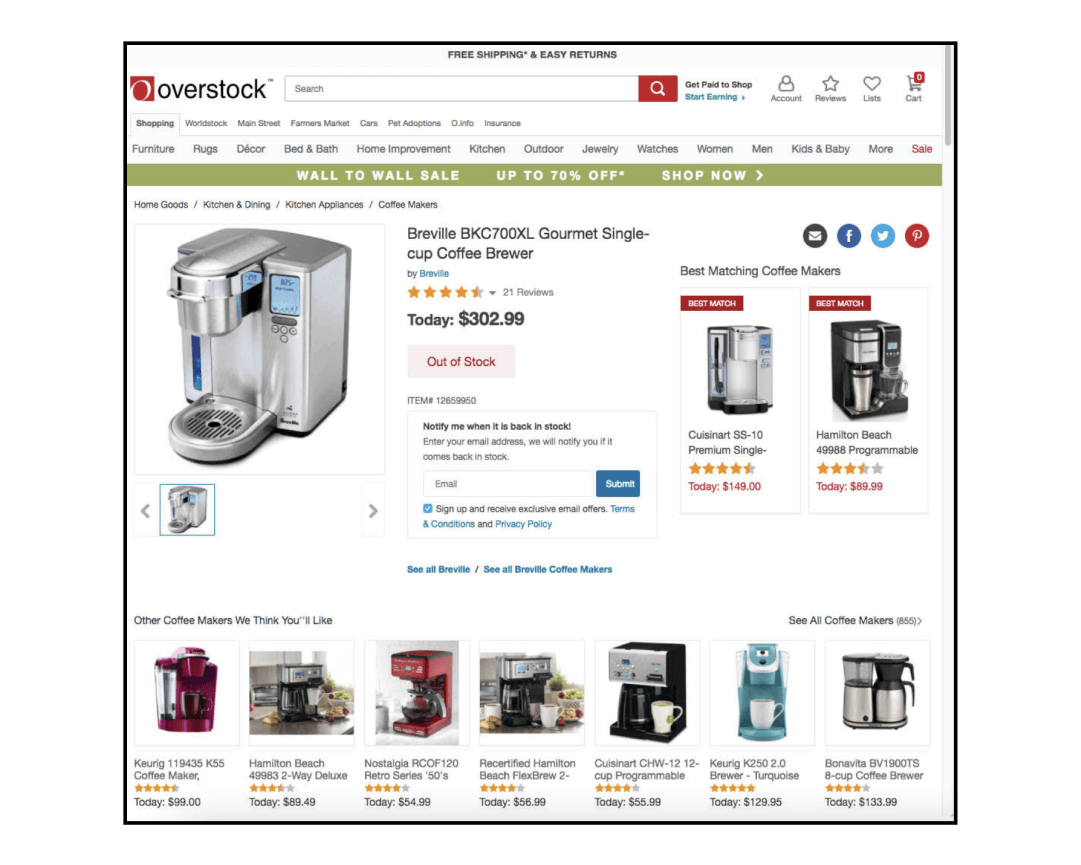
The average customer likes to be inundated by choice. Having said that, they also want to be absolutely clear about how they can access those options. Making the selection obvious can instantly increase the ease in customer experience.
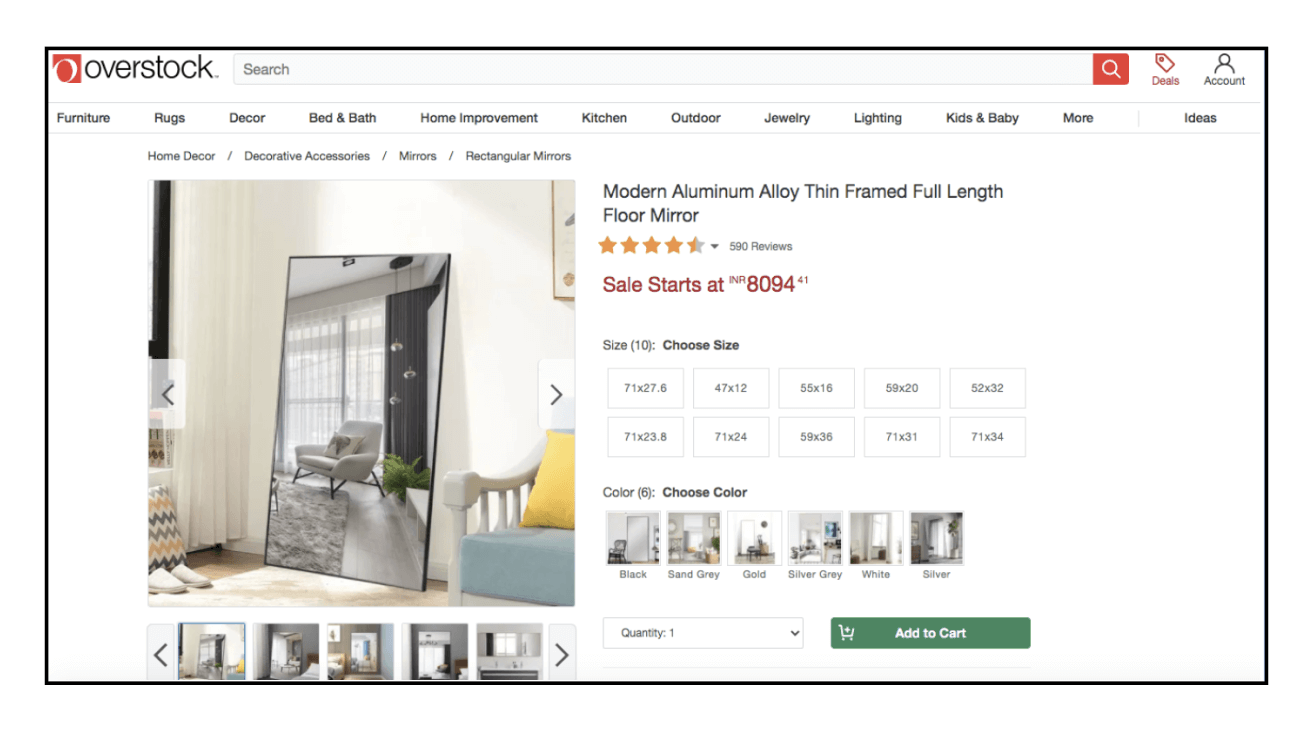
2) Create a speedy digital experience prioritizing mobile devices
The present is mobile and so is the future. Let’s take the example of a Statista study that clearly indicated that mobile phones made up for 54.8% of global website traffic in the first quarter of 2021. People search and close purchases on-the-go. A review of the following pointers can help you create a more refined ecommerce customer experience.
- Speed is everything in modern experiences. Mobile consumers today navigate web pages and apps at breakneck speeds. Slow loading times are conversion killers. Going headless enables you to craft and deliver unique and modern experiences that are blazing fast by separating your backend and front end platforms.
- Use “above the fold” space with supreme efficiency. “Above the fold” is the space you see on your mobile screen without having to scroll. While prioritizing the mobile experience, it’s imperative you use this section as wisely as possible. A precise description or CTA along with limited imagery often sits well with customers. Exactly how Snacknation uses “above the fold” while creating a mobile experience.
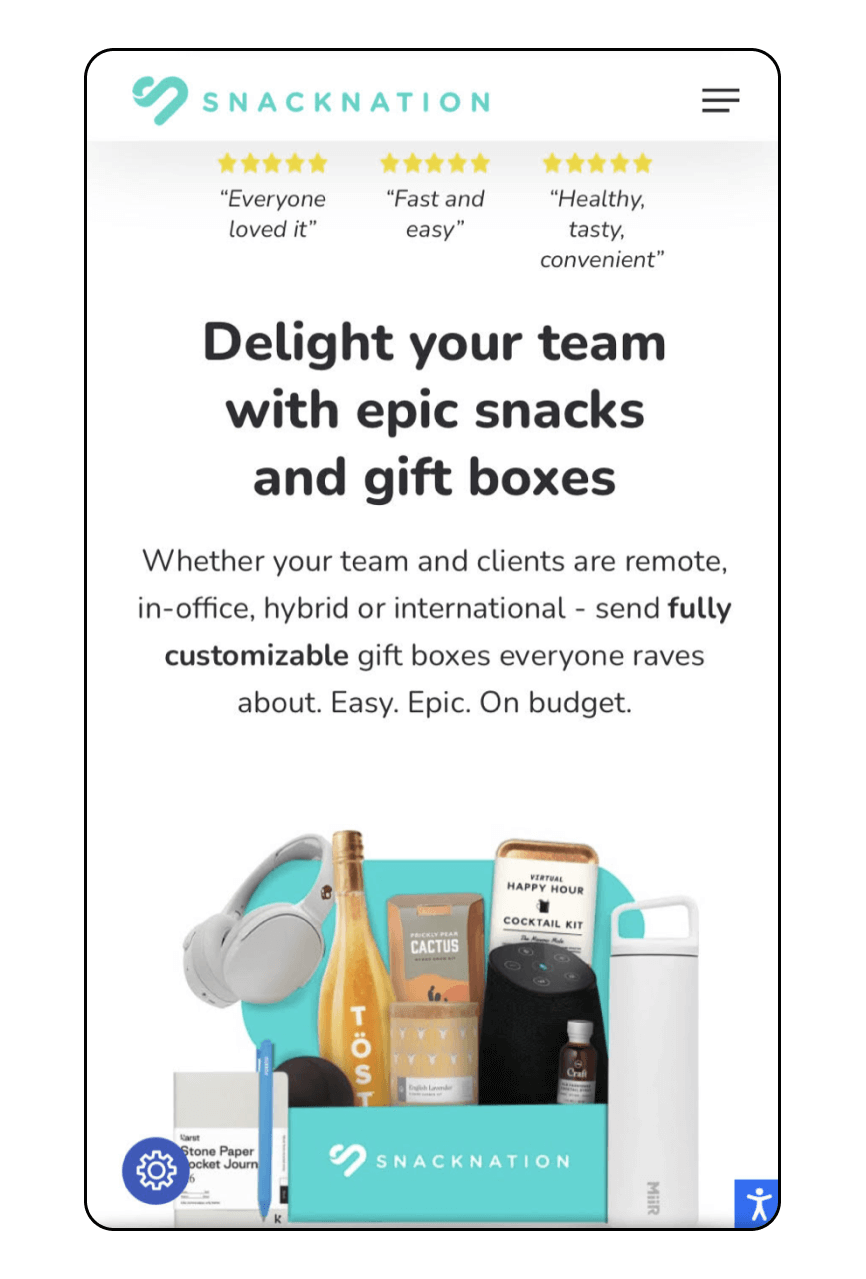
- Focus on creating clearly defined CTAs. While creating mobile experiences, a standard assumption needs to be that customers are on-the-go and would need clear instructions to take action. While CTAs are an important element for desktop commerce, they gain greater relevance on mobile devices. This is why some brands like Allbirds keep it really basic, without leaving room for confusion.
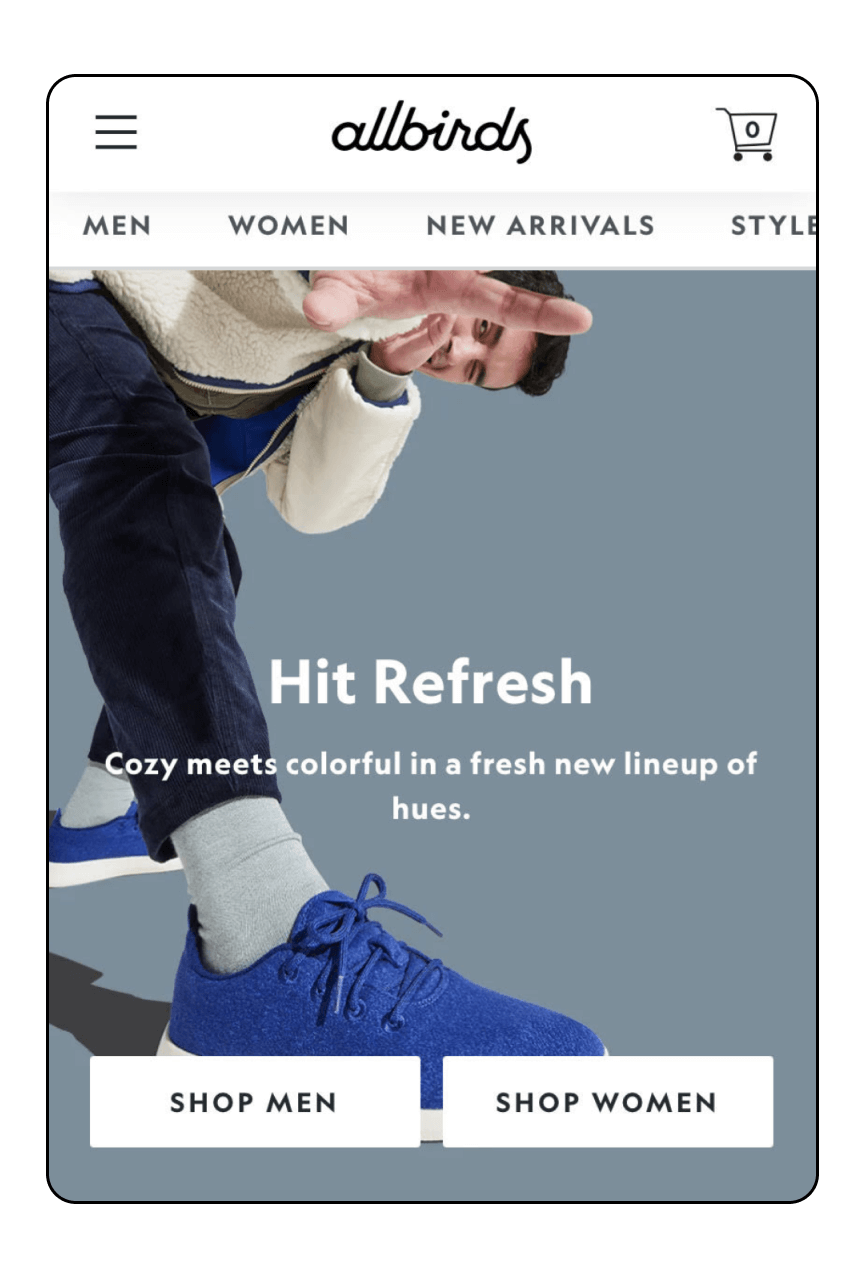
Airbnb, on the other hand, piques interest and targets those who want to travel but are unsure of where to go. But if you notice, their top search bar caters to those who are sure of their destination. On point!
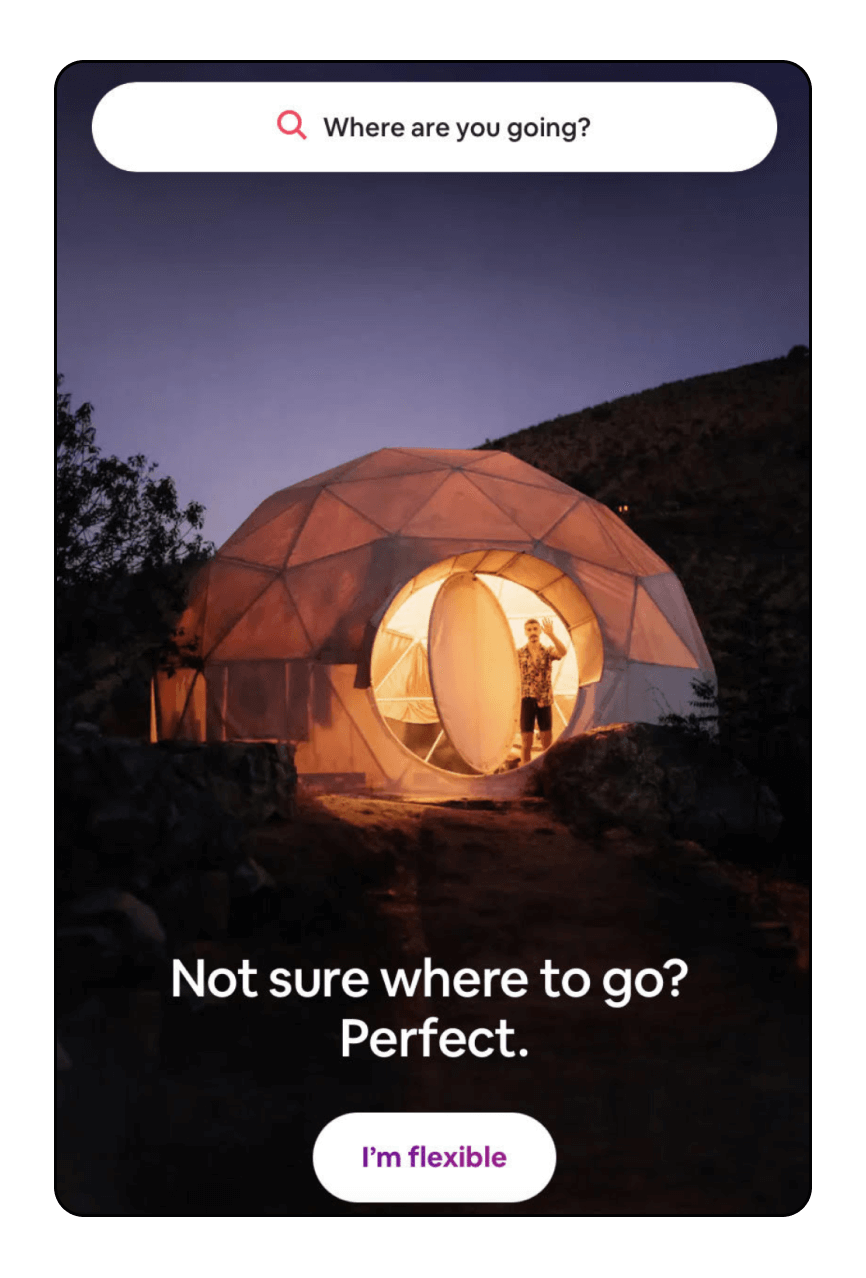
- Enhance search quality exponentially. Conversion is the last step in the ecommerce funnel, and predictably, before that comes engaging people with your current offerings. While some shoppers land on your site knowing what they want, many discover you by chance. And this increases the value of the search function, through which they can explore and encounter more choice. Here’s how Jackie Smith does it through their mobile site, not just showcasing the search icon but leaving the question “what are you looking for?”
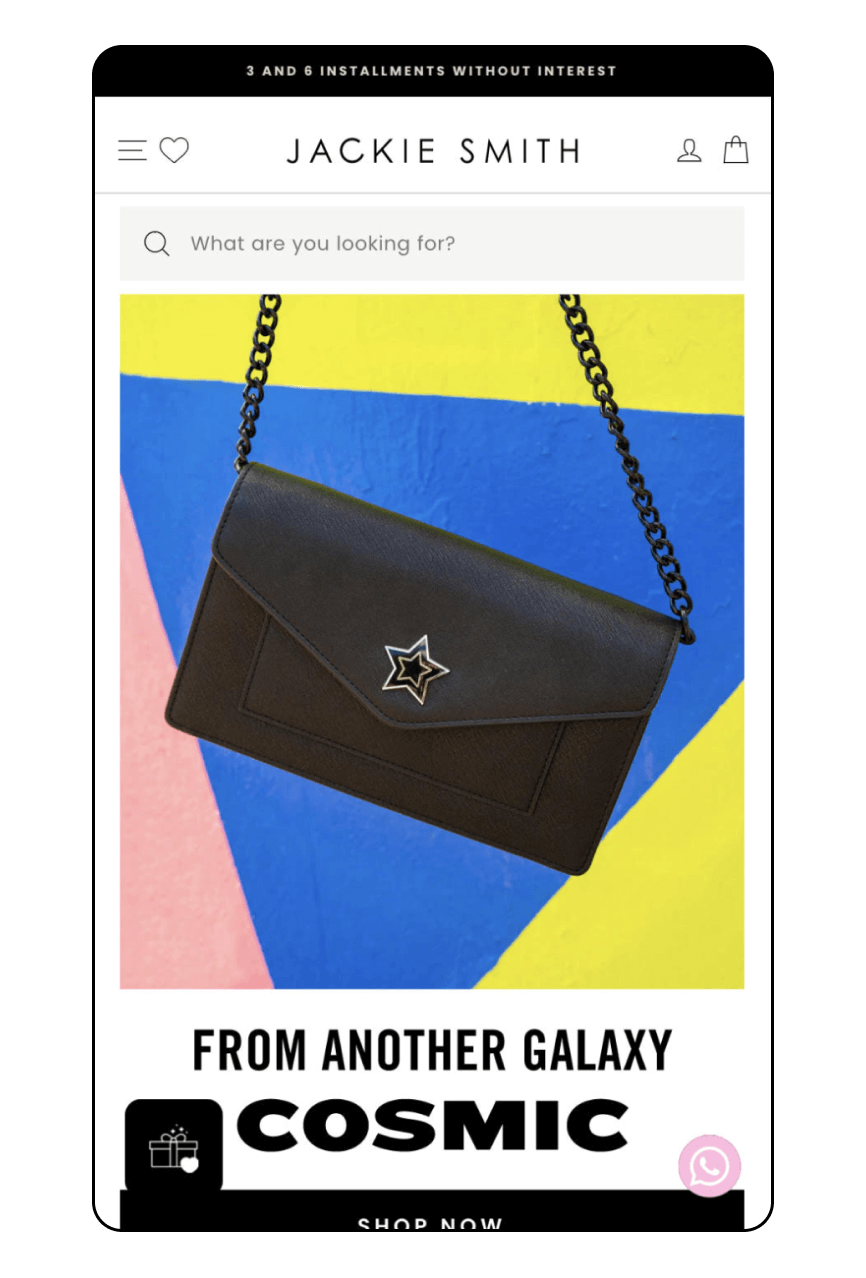
3) Ace the way you service customers
Doing business in a world that has an excess of options in any category, is challenging. The main challenge has to do with inspiring customers to keep coming back. One non-negotiable is the way your customers feel attended to, while they engage with your brand. The following is a quick list of must-dos to hold you in good stead around customer service.
- Build an efficient live chat tool (and make it visible!). A live chat tool does what it says – it’s live in the current moment and is available to take on questions and concerns from customers wherever they are. The more efficiency your live chat tool features, the more satisfied your shoppers are bound to feel. Whole Truth Foods lets customers wanting support jump straight on to a Whatsapp chat.
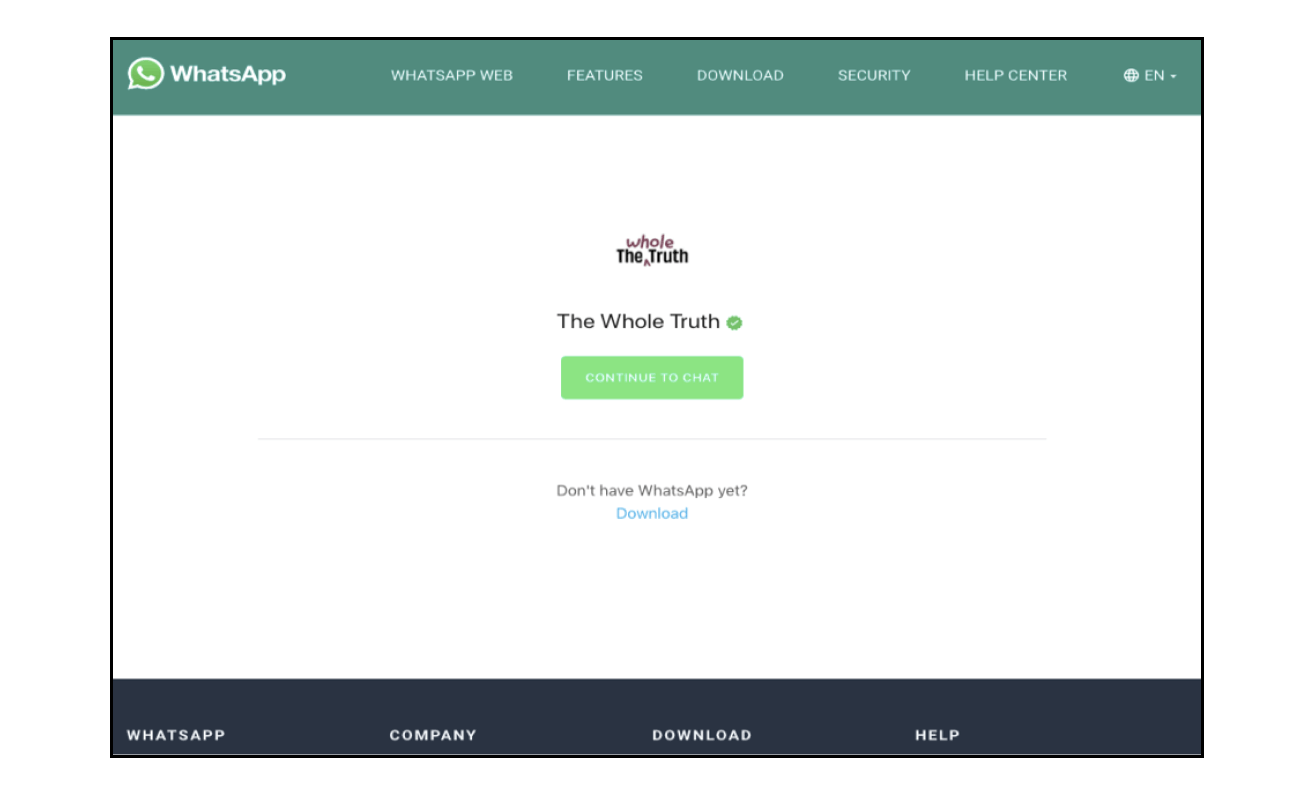
Ketochow, on the other hand, uses an integrative tool that offers some amount of self-help to customers:
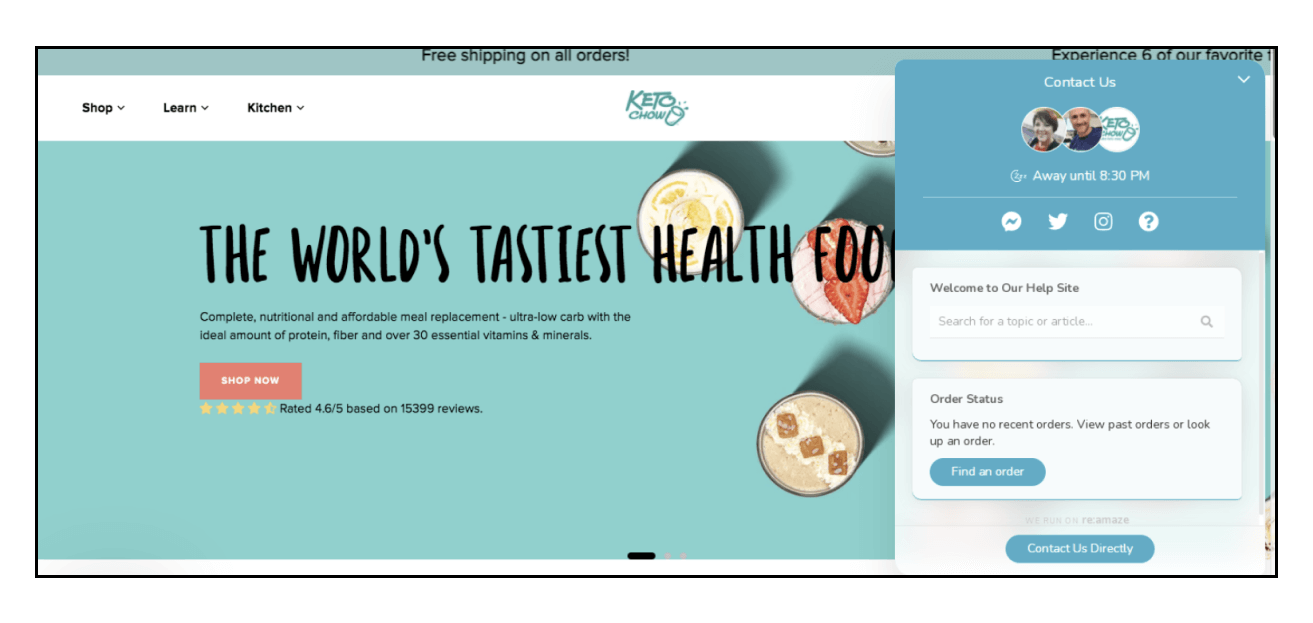
- Create wholesome content to reflect a sturdy knowledge base. Contrary to the popular belief that customer service is a one-time crisis-driven event, it’s in fact a process. Across online channels, businesses who are known for their prompt responses, maintain helpful and relevant content. While a part of it is about brand-building, a wholesome knowledge base leaves customers feeling better informed.
One thorough look at Etsy’s website, and you’ll know how serious the brand is about communicating what may matter to users.
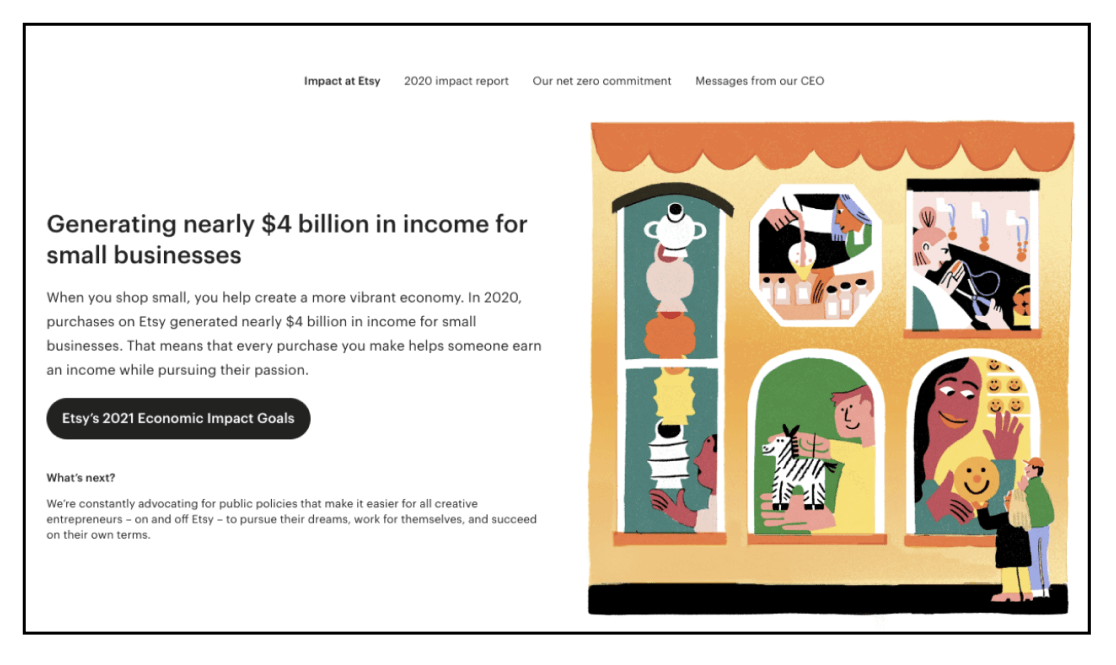
Airbnb creates content around what they are doing to create support for people around the world – and how their hosts are instrumental in these efforts.

- Templatize basic responses.Canned responses exist so that your customer support can extend its resources to pressing concerns beyond FAQs. Templatizing basic responses also offer greater use to customers and they can move from one point in the communication to another seamlessly.
4) Make product comparisons the highlight
On top of all other efficiencies, offering the option to compare products instantly uplifts the shopping experience. An in-site product comparison tool makes sure customers don’t have to constantly hop off to tally and compare. An integrated experience increases their motivations to stay on and make a purchase.
- Opt for the tabular format. Whether you’re looking at quantitative or qualitative comparison, creating tabular formats can be very helpful. A tabular format ensures the customer can view all the necessary information alongside each other without having to scroll. Here’s how Best Buy lines up products in a similar category and presents data for comparison.
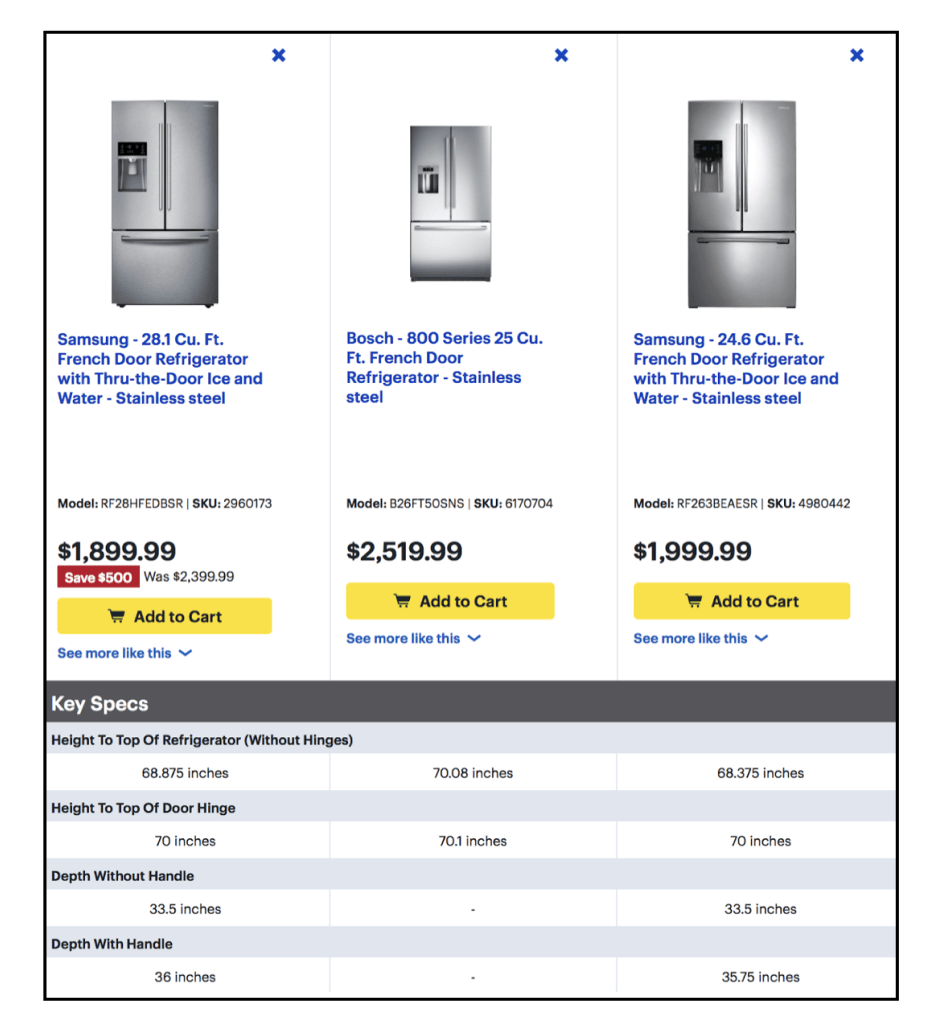
- Consider faceted search. Enriching the list of facets you make available for consideration, can help you refine your product comparison efforts. Introducing facets on the left side of the page to be chosen through radio buttons or asking questions through a quiz could be the way to go. Fitbit has introduced a quiz where they ask questions in three stages and in the final one, request customers to pick the facets that are important to them.
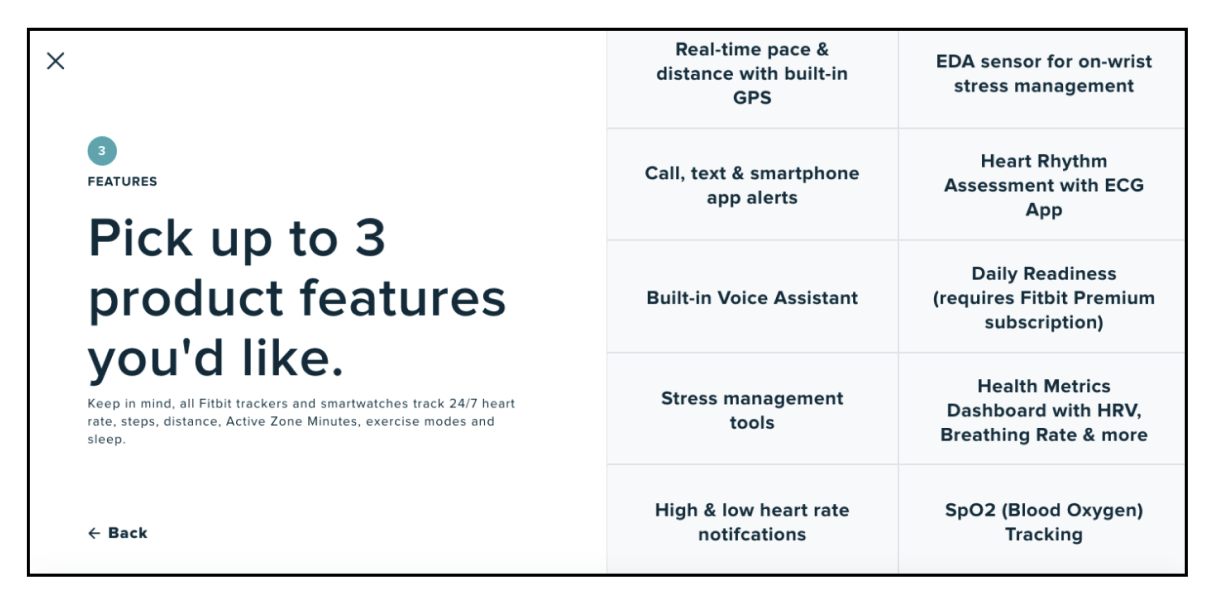
5) Focus on a faster checkout process
Like it or not, conversions are based on how speedily and smoothly shoppers are able to checkout with their chosen purchase. According to Shopify, depending on the industry, anywhere between 65% and 96% customers abandon their cart at checkout. A quick checklist of basics can help you create a checkout process that customers can come to admire.
- Design a one-page checkout. A one-page checkout declares something to the customer clearly and loudly: your time is valuable and with us, you won’t spend more of it than you need to. Here’s a look at how Bellroy does it with their express checkout (with all necessary info in place, without having to move through multiple pages!)
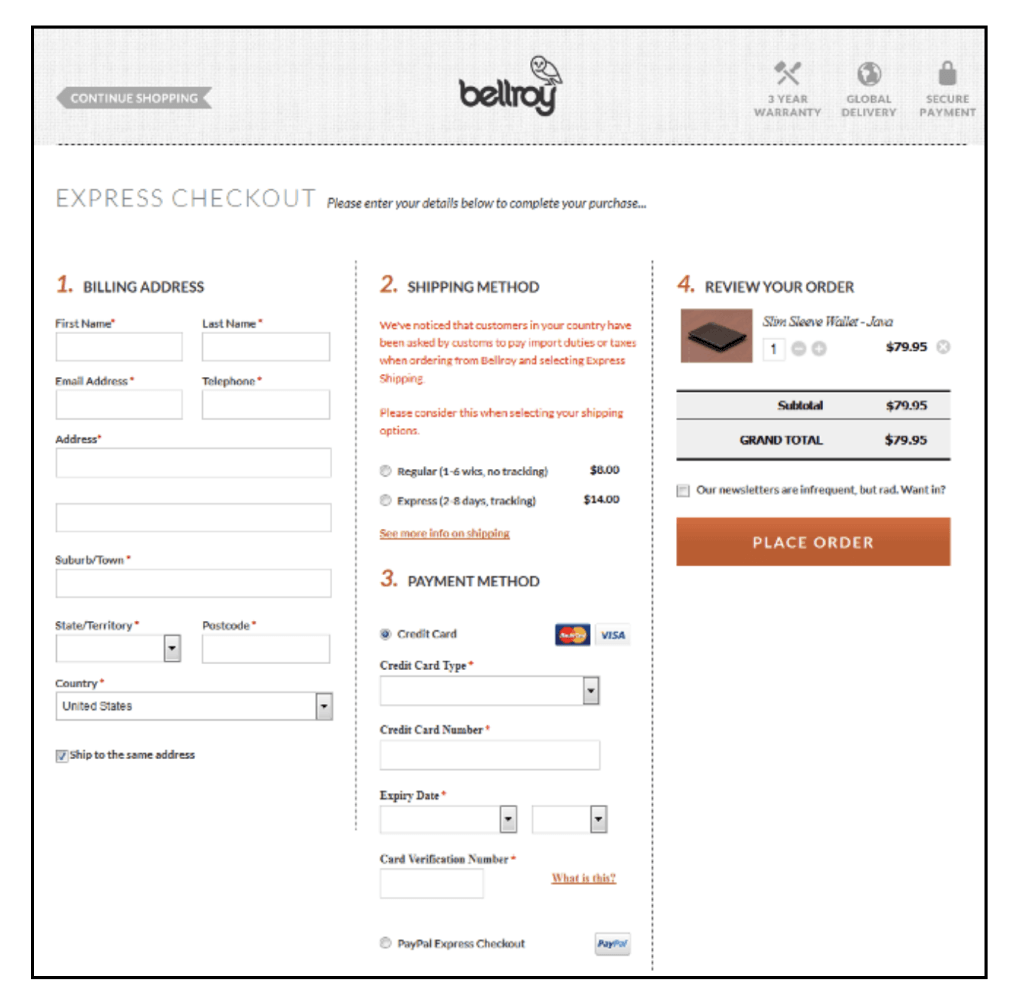
- Feature customer support information. As much as the checkout page offers customers the opportunity to be done with their purchase, it can potentially offer something else too. If the customer has lingering questions about what they are purchasing, you can seek to answer them at this crucial stage. Including customer support information at checkout can, hence, be vital. The following example shows how Nike does it.
- Make way for guest checkout. At a time when shoppers expect that their ecommerce experience will be lightning fast, guest checkout can be a value-add. While some customers find it a hassle to go through the whole loop of providing account information, others need time to trust giving their information. In the following example, Best Buy combines options on the same page.
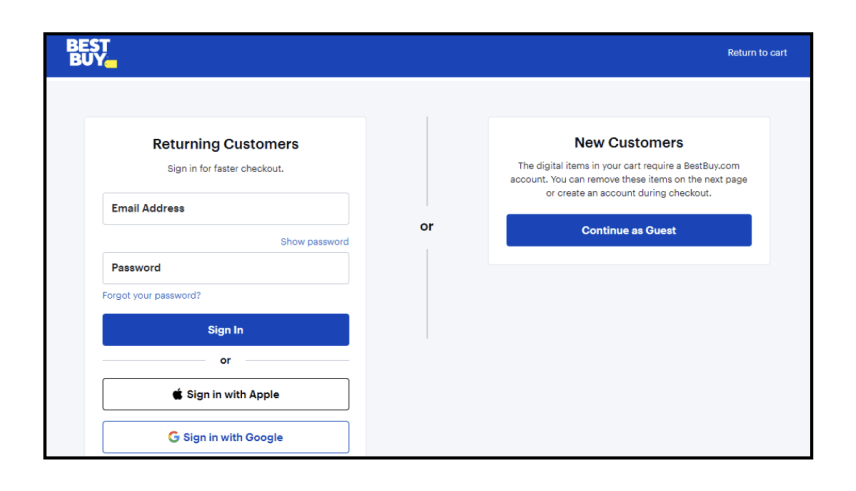
6) Opt for an omni channel support approach
Ecommerce has evolved to be about shoppers trusting brands only when they are able to create integrative and seamless experiences. This has resulted in businesses realizing the power of the omni channel approach. An HBR 2017 study revealed that 73% of customers prefer looking through multiple channels before deciding on a purchase. Whether you choose mobile apps, virtual catalogs or your brand website to interact with shoppers, they need to be speaking the same language. An omnichannel approach brings together communication, promotion and distribution into one integrative whole, making the shopper experience ease and trust. When you take the omnichannel route, your shoppers can opt to be supported through the channel of their choice.
- Communicate support through email. So much about email marketing has come to be about offers, discounts and launches. However, email is a wonderful medium through which a business can convey customer support. Here’s how Patagonia does it, using language and information that’s welcoming and relevant.
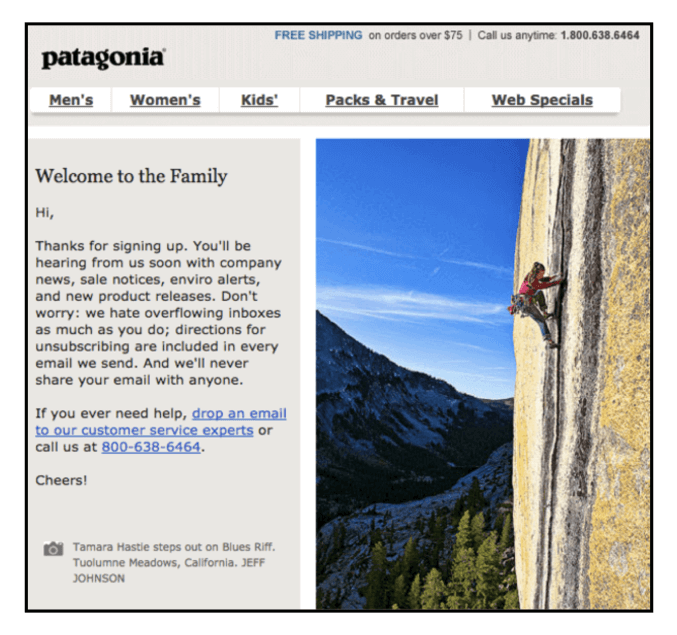
- Generate helpful content across social media handles. Customer support doesn’t come in handy only when there’s a crisis. Offering relevant information can also be a form of support by ecommerce brands. The following examples explore how emergency kit brand Judy creates content that’s bound to attract their target audience.


- Take customer feedback seriously. One of the no-so-obvious advantages of running an ecommerce business is that it enables you to track customer behavior and feedback, with a little effort. And when relevant data does come in, it’s an opportunity for you to review the gaps and make necessary adjustments to improve overall satisfaction. Nordstrom, for example, asks for a short survey to be filled and later uses the data to refine their customer experience.
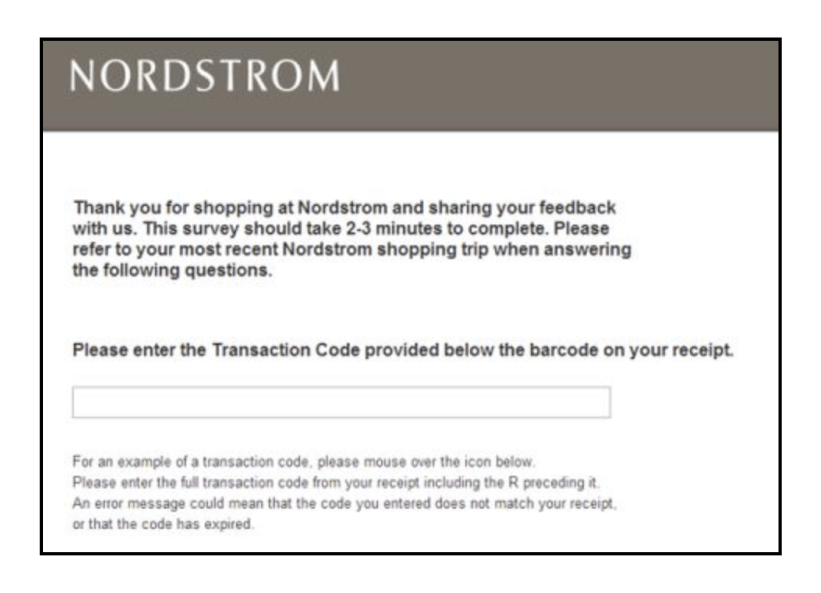
7) Prioritize the way you showcase customer reviews
In the Power of Reviews report, it was discovered that 95% shoppers prefer reading reviews before settling on a purchase. This is proof enough to tell you that this is an aspect of your ecommerce customer experience that needs constant attention. By garnering social proof, shoppers decide on what they consider a reliable choice for a purchase.
- Feature genuine reviews (and be transparent about who has given them!). For new as well as returning customers to gather enough faith to buy a product, a business needs to offer them genuine reviews. Amazon offers a worthwhile example for this. The user accounts that reviews come from can be checked and verified, and this includes checking on their activity history.

- Include the positive AND the negative. In another Power of Reviews study, it was stated that 82% who read online reviews are actually looking out for negative reviews. While this may sound extreme, what this really means is that people are giving precedence to the negative to come to purchase conclusions. In the following example, notice how Bonobos features their reviews in detail. They also give the reader the option to record whether they found a certain review helpful.
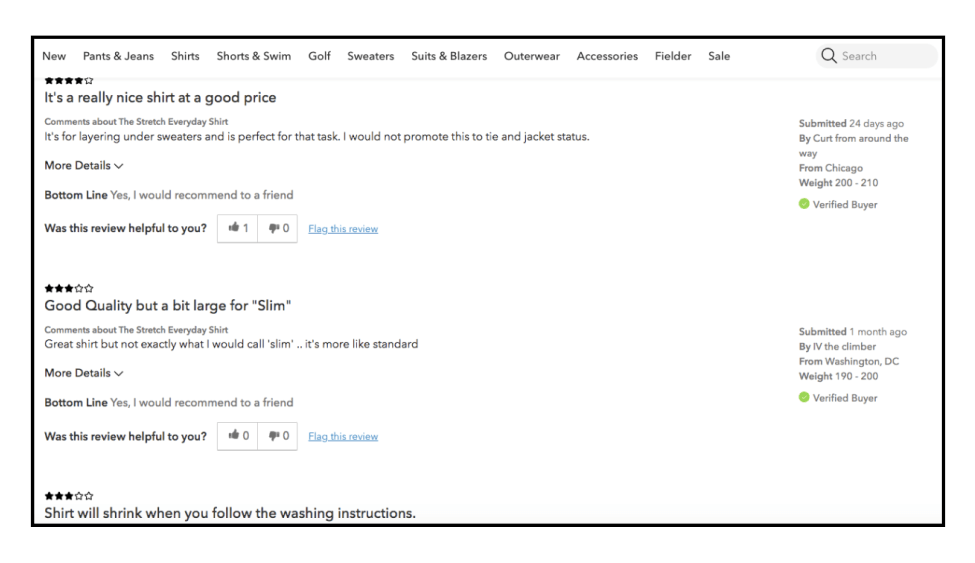
- Set up a process to identify fraudulent behavior. As ecommerce turnovers shoot through the sky, so do fraudulent behavior. Seeking to understand user behavior can give you a better view of fraudulent reviews. Set up a process that identifies multiple declined transactions, orders that exceed way beyond the average, inconsistent identity data provided and unusual location information, among other factors.
8) Create a number of payment alternatives
Alternative payment methods (APMs) are here to stay, and ecommerce businesses can leverage their existence like no other. From credit and debit cards to mobile wallets to cryptocurrencies, APMs can trigger heightened ecommerce sales and can specifically work well for a global audience.
- Choose secure payment options only. While credit and debit cards continue to be the safest payment options, verified and proven mobile wallets initiated by standards established by Google Pay, are also making a mark now. Ensuring you tie up with a trusted name will safeguard transactions while creating greater trust in shoppers. ebay features a number of different payment modes, and also clearly showcases what they are on their product pages.
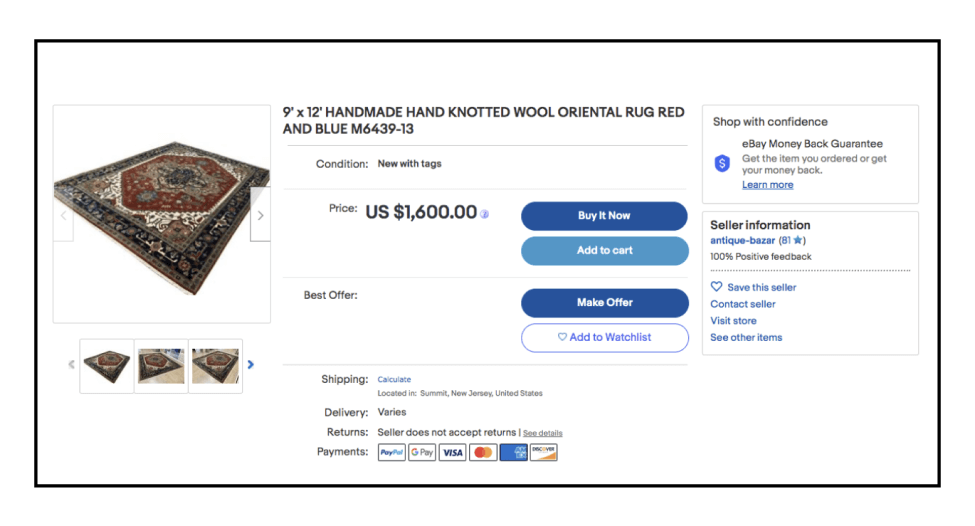
- Introduce buy-now-pay-later payment options. As ecommerce businesses strive to make the purchase process increasingly frictionless, the buy-now-pay-later model is gaining ground. The model essentially works on the idea of letting people buy on credit and then paying later in installments. Working with an authorized credit limit, the BNPL mode of payment creates seamless ease amongst all kinds of shoppers – reducing their decision to abandon cart or save products to buy later.Tula, the baby carrier brand, features this method.
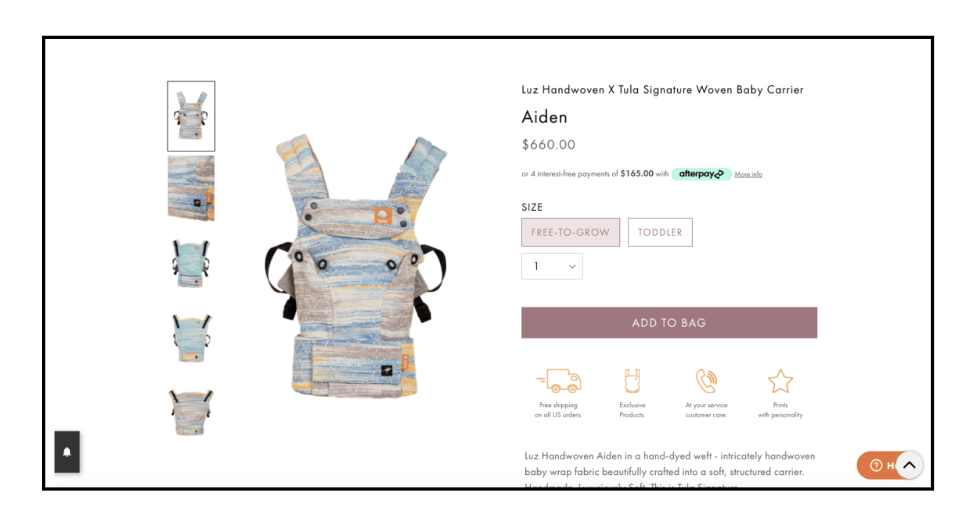
9) Make use of filters intelligently (and creatively!)
Product discoverability is key to a good ecommerce experience for customers and better conversions for businesses. With the use of product filters, you can hope to improve discoverability significantly. While implementing filters, it’s essential to remember that different users will be using your site in different ways: while some already know what they are looking for, some would want to spend time exploring. A seamless findability experience will improve the chances more visitors convert.
- Keep it simple and intuitive.Filters that you use need to be simple and intuitive so that all types of visitors can understand without effort. Ajio offers a simple layout of some basic filters on the left, followed by more narrowed-down filters.
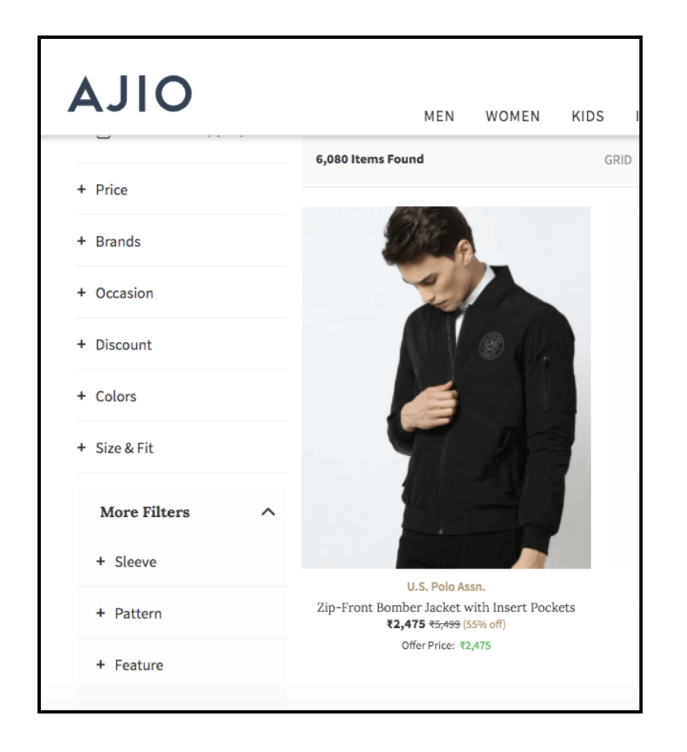
- Create high-level filters for busy categories. Some product categories can be really wide. And that requires high-level categories to offer clarity to customers searching within that category. Here’s a look at how Nike creates high-level categorization for their men’s and women’s shoes.
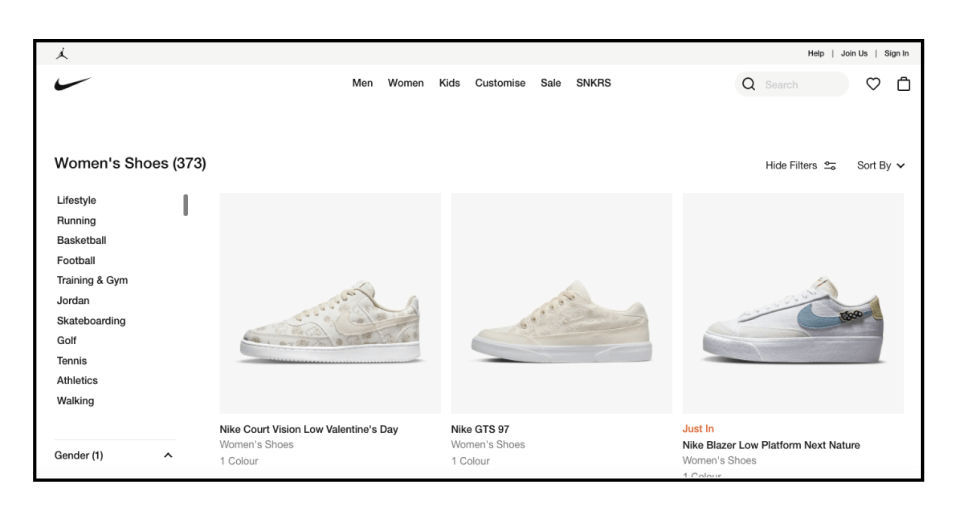
- Highlight the presence of filters. While filters are ubiquitous in the times we live in, the failure to highlight their presence can pose search difficulties for shoppers. Here’s a quick look at how apparel brand Missguided goes about calling attention to their filters. The introductory phase “shop by” is enough as a visual cue.
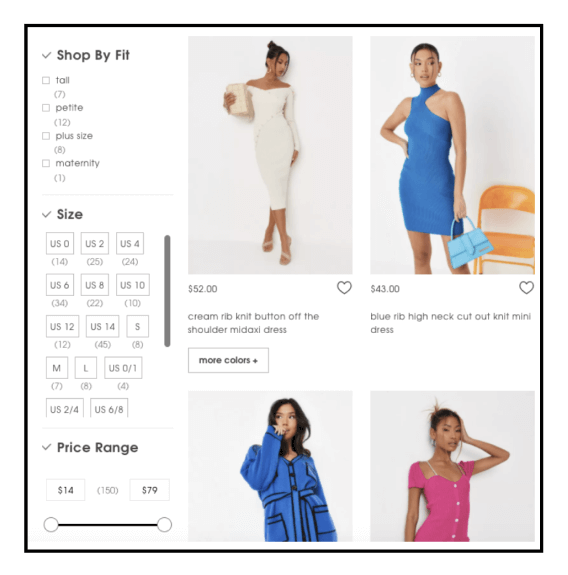
10) Personalize for a differentiated experience
In comparison to a brick-and-mortar setting where everyone is exposed to everything, ecommerce provides ample opportunity for personalization. And with data collection and analysis evolving, this has become an even bigger window of opportunity.
- Feature relevant product recommendations. This can benefit your business by increasing the average order value. Alongside, customers also don’t have to encounter information overload and can focus on what really matters to them. LeSportSac, for example, does not wait for product pages to dive into personalized recommendations. They feature them right on the homepage.
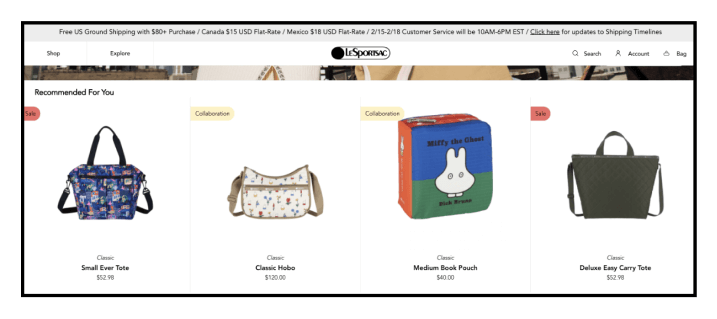
- Offer relevant exit intent popups. Exit intent is a form of technology that enables marketers to know when a user’s behavior is changing from exploratory or purchase-driven to wanting to exit. This comes in handy especially if just as a user is about to exit, a piece of relevant communication is used to bring them back or convert. The following example shows how Skullcandy handles the exit behavior of first-time users.
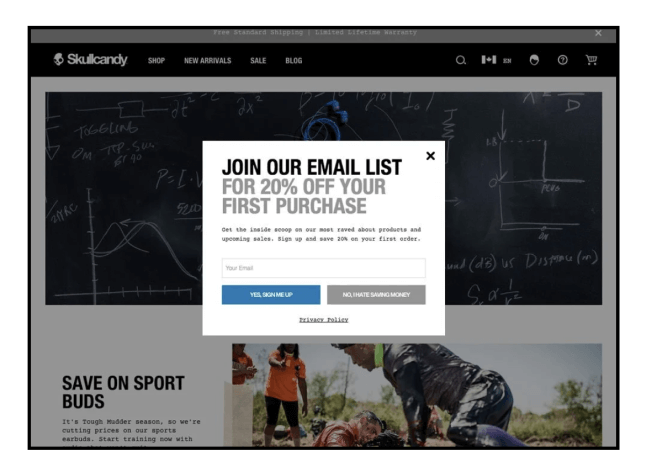
- Come up with offers and discounts based on user behavior.Ecommerce sets the perfect stage to analyze user behavior. Whether the customer has landed on your site for the first time or have been coming back, serving personalized offers and discounts can be useful. Lifestyle brand Very, for example, talks about “deals you’ll love” the moment you arrive at their homepage.
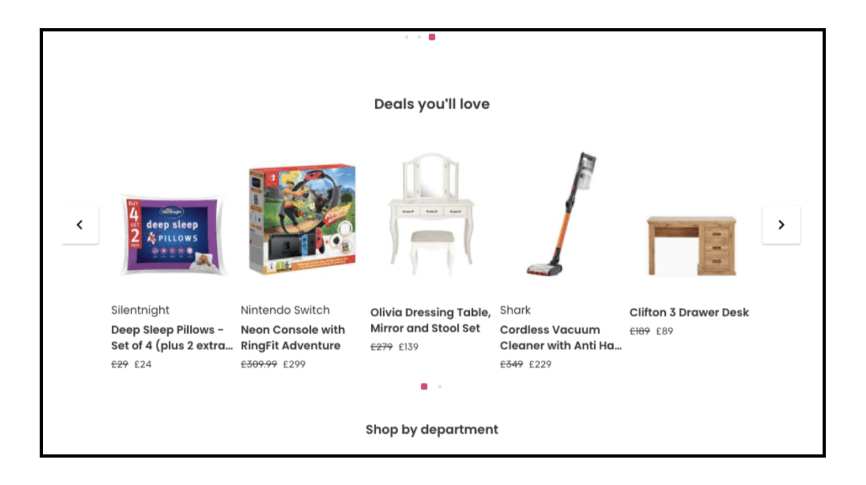
11) Bonus tip: Prioritize post-purchase CX
It’s easy to think ecommerce is all about sourcing new customers. But the question to ask always is, “Now that they have made a purchase, is there something else we can help them with?” You guessed it right. When someone converts to purchase something from your ecommerce website, another cycle of their journey is beginning. And there’s plenty you can do to make this experience easy and wholesome for them.
- Contribute to the delivery experience. This has several parts to it, including clear communication on when you are going to deliver, being transparent about the mode of delivery and offering free shipping when possible. Here’s a look at how Fitbit creates a connection with their post-purchase email communication.
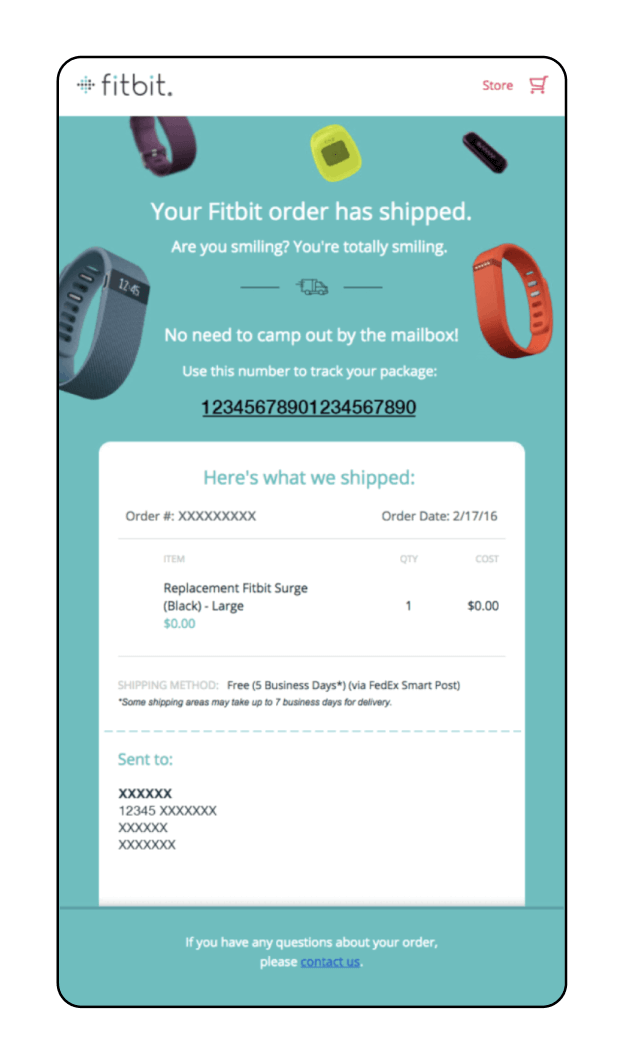
- Sharpen your returns & refund policy. Unlike a brick-and-mortar setup where shoppers can feel and check products in person, ecommerce stores rely entirely on visuals and descriptions to do that work. This is why if you want your ecommerce business to be genuinely loved and recommended, incorporating a fair returns and refund policy is important. Ikea sets a wonderful example when it comes to their returns and refund policy. Their website offers all the help imaginable for shoppers to negotiate this post-purchase stage.
You may also like
Essential resources for your success















